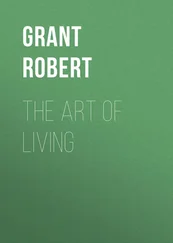“From the point of view of which character? But you know,” he interrupted himself, “she still always knows what she wants! She used to be a charmingly helpless little girl — I have known her for a long time already — but she learned a lot from me. When I lie, she finds it awful; when I don’t leave on time for the office in the morning, she claims I’ll never be able to support a family; when I can’t resolve to keep a promise I previously made, she knows that only a scoundrel could do such a thing.”
My friend smiled again. He was an amiable fellow in those days, and everyone looked affectionately down on him. No one ever thought for a moment that he would amount to anything. His external appearance alone already gave him away, for as soon as he started talking, every part of his body twisted into a different position; his eyes shifted to the side; shoulder, arm, and hand turned in opposite directions; and at least one leg swayed in the hollow underside of his knee like a postage scale. As I said, he was an amiable fellow back then, modest, shy, respectful; and sometimes he was also the opposite of all that, but one remained well-disposed toward him, out of curiosity alone.
When I met him again, he had a car, that woman as a wife who was now his shadow, and a respected, influential position. How he started this, I don’t know; but I suspect that the secret of it all was that he grew fat. His daunted, lissome face was gone. To be more precise, it was still there, but it lay buried under a thick upholstery of flesh. His eyes, which in the old days, when he had done some mischief, could be as touching as those of a sad little monkey, had in fact not lost their internal lustre; but they had a hard time shifting sideways beneath the bulk of his heavily upholstered cheeks, and so stared forwards with a haughty, pained expression. Internally, his movements continued to twist in every which way, but on the outside, at his elbows, knees and joints, padded pillows of fat held them back, and what came out gave an impression of brusqueness and decisiveness. So he had also become the man to suit the image. His flickering soul had taken on solid walls and convictions. Sometimes a spark of his old self still sallied forth; yet it no longer emanated any brightness in the man, but was rather a shot that he gave off to impress or to achieve a specific goal. The fact is that he had forfeited much of what he was before. Above all, the things he said, it was six of one or half a dozen of the other, even if they were a half-dozen sound, reliable goods. He recalled the past as one does a youthful indiscretion.
Once I succeeded in directing his attention back to our old topic of conversation, character. “I am convinced that the development of character has something to do with the way we wage war,” he expounded in short-breathed, insistent syllables, “and that nowadays, for that very reason, it can only be found among savages. For those who fight with knives and spears require character to come out on top. But what kind of character, however resolute, can stand up to tanks, flame throwers and poison gas!? What we therefore need today is discipline, not character!”
I had not contradicted him. But the strange thing was — and that’s why I permit myself to record this memory — all the while he spoke and I watched him, I retained the impression that the old person was still inside him. He stood inside himself, confined within the larger fleshy revision of the old self. His gaze was stuck inside the gaze of that other, his speech inside his speech. It was almost uncanny. I have since run into him again on several other occasions, and each time had the same impression. It was clear to me, if I may say so, that he would have liked to be himself again; but something held him back.
A Story Over Three Centuries
1729
When the Marquis d’Epatant was thrown to the beasts of prey — a story which unfortunately is not mentioned in a single one of the chronicles of the 18th century — he suddenly found himself in a tight scrape, the like of which he had never encountered. He had bid life adieu, and smiling with a look that seemed to emanate from two cleanly cut diamonds, but no longer saw anything, he stepped into nothingness. Yet this nothingness did not cause him to dissolve in eternity, but rather congealed around him in a very actual fashion; in short, not nothingness, but nothing followed, and as soon as he once again used his eyes to see, he noticed a big beast of prey watching him irresolutely. This would not, we must assume, have further ruffled the Marquis — he was afraid, but knew how to comport himself — had he not at that same instant realized that it was a female beast standing before him.
Strindbergian views were not yet current at the time; people lived and died with their 18th-century views, and Epatant’s most natural response would have been to doff his hat and gallantly bow. But then he noticed that the wrists of the lady looking at him were almost as wide as his thigh, and the teeth that became visible in that voluptuous and eagerly opened mouth gave him an inkling of the massacre that awaited him. This creature that stood before him was terrifying, beautiful, strong, but absolutely feminine in her expression and bearing. The ardently playful intent evident in every limb of the wildcat’s body reminded him in all respects of the ravishing, silent eloquence of love. Not only did he have to suffer dread, but he likewise had to contend with the shameful struggles that his dread waged with his masculine need, under any circumstances, to impress a female, to subdue and vanquish the woman in him. Instead of subduing her, however, he felt himself perplexed and defeated by his opponent. The female beast intimidated the beast in him, and the consummately feminine aspect that every one of her movements exuded added the stun of impotence to the failure of any resistance. He, the Marquis d’Epatant, had been reduced to the condition and role of a woman, and this in the last minute of his life! He saw no way to evade this awful affront, lost control of himself, and fortunately, no longer knew what happened to him.
2197 before Our Time
It should not be presumed that the date is correct, but if the State of the Amazons did indeed exist, then ladies to be reckoned with must have lived there. For if they had merely constituted a somewhat violently inclined women’s rights organization, they would have earned the historical reputation of Abderites or Sancho Panzas, and would have remained down to the present day a comic example of unwomanly behavior. Instead, however, they live on in heroic memory, from which we may conclude that in their day they had quite a considerable reputation for burning, murdering, and looting. More than one Indo-Germanic man must have been afraid of them for them to have achieved such a name for themselves. More than one hero must have run away from them. In short, they must have done no small damage to the pride of prehistoric man, until finally, to excuse so much cowardice, he made legendary figures out of them, following the same law by which a vacationer who runs from a cow will always claim it was at least an ox.
But what if this nation of virgins never existed? And this is more than likely, for the simple reason that it would be difficult to imagine divisions and regiments of storks flying new recruits in to the man-killing virgins. What, then, were the ancient heroes afraid of? Was the whole thing nothing but a curious, violently inclined dream? We cannot help but recall that classical man also venerated goddesses by whom, in the frenzy of worship, they were torn to pieces, and the Thebans knowingly visited the Sphinx like the fly visits the spider. We must shamefully wonder just a little at what kind of spider and insect dreams were harbored by these ancestors of our classical training! Exemplary athletes who didn’t think much of women, they dreamed of women whom they could fear. Is it possible in the end that Mr. Sacher-Masoch should have had such a long lineage? This is hardly likely. For we may wish to imagine that the past was dark, so that today things seem all the brighter; but it is hard to believe that there should be something so deranged at the very base of our humanistic education. Were they jokers, those ancient Greeks? Or were they given to vast exaggeration, in the manner of all Levantines? Or did a primal harmlessness underlie their primal perversity, that only much later took root in our sick souls?
Читать дальше











